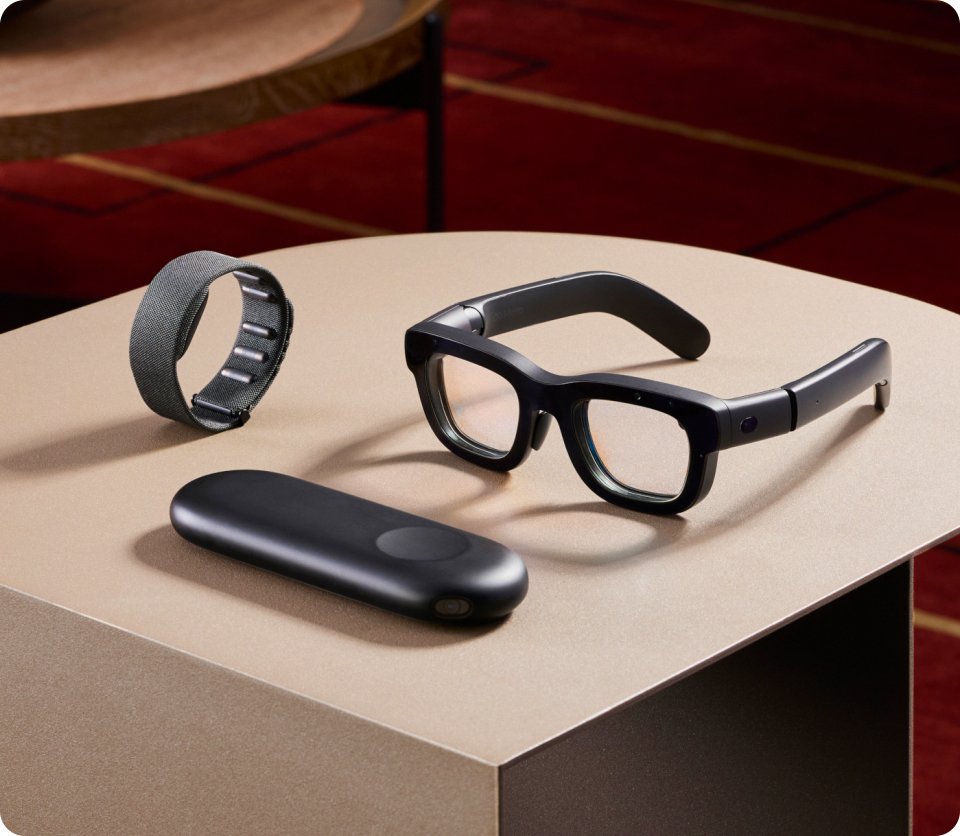Mark Zuckerberg took the stage at Meta Connect 2024; there was a clue that the Meta CEO would announce something regarding the rumoured Project Orion. However, the prototype smart glasses he revealed were still a surprise and pointed to a different way to think about smart glasses and what kind of technology can power them.
Glasses can be controlled via voice, eye, and hand tracking. Zuckerberg used the phrase “neural link” to describe another control method, but this EMG wristband enables swiping, clicking, and scrolling. Also, there are no cables connecting anything to the glasses. Perhaps the most exciting feature of the Orion glasses is the lenses, which are not made from glass or plastic. Instead, Meta uses silicon carbide, where tiny projections are beamed onto the lenses. This material is supposed to be more durable and lighter and features an ultrahigh index for refraction of the onboard projectors.
Meta said in a press release, “Orion is a feat of miniaturization – the components are packed down to a fraction of a millimetre. Dozens of innovations were required to get the design down to a contemporary form you’d be comfortable wearing daily. Orion has the largest field of view in the smallest AR glasses form. That field of view unlocks truly immersive use cases for Orion, from multitasking windows and big-screen entertainment to life-size holograms of people – all digital content that can seamlessly blend with your view of the physical world.”
While Orion may not arrive anytime soon, Meta has said that we should expect the price of a pair of future Orion AR glasses to be closer to that of a high-end phone or a laptop.
Michael Kozlowski has been writing about audiobooks and e-readers for the past twelve years. His articles have been picked up by major and local news sources and websites such as the CBC, CNET, Engadget, Huffington Post and the New York Times. He Lives in Vancouver, British Columbia, Canada.

